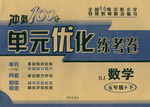题目内容
In winter, we must pay attention to _________.
A. keep warm B. keep warmly C. keeping warm D. keeping warmly
C
【解析】
试题分析:warm是形容词暖和的;warmly是副词热情地,温暖地。句意:在冬天,我们必须注意保暖。本句中to是介词,后面接名词或者动名词。Keep为系动词后面接形容词做表语,故选C。
考点:词性辨析及动名词
点评:形容词和副词的区别主要是在句子中作为句子成分的不同,虽然都可以放在动词后面,但是形容词是放在系动词后面,副词放在实意动词后面。确定keep时系动词好还是实意动词是解答本题的关键。另外,解答此类题型最简单的方法是熟记短语,培养语感。

 冲刺100分单元优化练考卷系列答案
冲刺100分单元优化练考卷系列答案
Animals grow up in different ways. They have lots of lessons to learn.
Some animals are born helpless but their mothers protect them. A newborn kangaroo is the size of a bee. She stays in her mother’s safe pouch. She doesn’t open her eyes for at least five months. A newborn monkey cannot walk. He is carried by his mother.
Other baby animals can walk soon after they’re born. They learn to run with their mother when danger is near. A baby zebra(斑马)can run an hour after she is born.
Some baby animals are born in a place that is safe. Other baby animals are born in the open. Baby wolves are born in large holes. A baby elephant is born on open, grassy land. Other elephants make a circle(圈)to protect her.

Animals that drink their mothers’ milk are called mammals. A mother bear’s milk is fatty and rich. Baby bears need lots of fat to keep warm in winter. They have milk for six months. Baby zebras drink milk for six months or more! As baby animals grow they need solid(固体的)food. Baby lions eat what their mother can catch.
【小题1】Which baby animals don’t open their eyes for at least five months?
| A.Lions. | B.Zebras. |
| C.Kangaroos. | D.Elephants. |
| A.Drink milk. |
| B.Walk by herself. |
| C.Run with her mother. |
| D.Make a circle to protect herself. |
| A.Baby wolves are born in the open. |
| B.Newborn lions only eat solid food. |
| C.Newborn monkeys can walk but can’t jump. |
| D.Baby bears need lots of fat to keep warm in winter. |
根据短文内容,选择最佳答案。(每小题2分,共20分)
(A)
We all have our own ways of sharing our life experiences with others.
Photographers use cameras, artists use brushes, musicians use songs and writers use stories.
Spencer Johnson’s story Who Moved My Cheese? Shows changes exist in (存在于) our life. Life changes and so we do. We must change ourselves to face the changing environment, or we will fail.
Just look at the cycle (循环) of the seasons. Trees bud (发芽) in spring and in summer their leaves turn green. In autumn, their leaves start to fall onto the ground. When winter arrives, there are no leaves on trees. Next spring the cycle begins again. Since we know there are cycles in nature, we can prepare for them. We know it is colder in winter and hotter in summer, so we can dress properly.
Since we accept the cycles of nature, we should also accept the changes in our life.
We can prepare ourselves for changes by becoming more flexible(灵活的). We can regard the changes in our life as chances. As we keep changing ourselves, we can keep up with the changes in our life.
【小题1】What do writers use to share their life experiences?
| A.Stories | B.Newspapers | C.Basketballs | D.Pianos |
| A.changes exist in our life |
| B.we should move other’s things |
| C.we should use books to share our life experiences |
| D.there are difficulties in our life |
| A.we should wear warm clothes in winter |
| B.we should accept the changes in our life |
| C.we should prepare for the weather |
| D.leaves turn yellow in autumn |
| A.I have no chance to pass the test. |
| B.Exams are hard for me. |
| C.I have bad luck. |
| D.It’s good for me because I know there are more to learn. |
| A.Weather changes in different seasons. |
| B.Who Moved My Cheese? is a good book. |
| C.We should change ourselves when life changes. |
| D.We should not lose heart when meet with difficulties. |
The marathon(马拉松) in my town usually takes place in hot weather. My job was to follow the runners to help those who needed medical help. “We should stay behind the last runner, so take it slowly,” I said to the driver, Doug.
As it began, the front runners started to disappear(消失). Then I noticed a woman in blue running shorts and a white T-shirt. “ Doug, look!” We knew we were watching our “last runner”. Her feet turned in , yet her left knee turned out. Her legs were so crippled(畸形的) that it seemed impossible for her to be able to walk. How could she run a marathon?
We watched in silence as she slowly moved forward. We would move forward a little bit, then stop and wait for her. Then we would slowly move forward a little bit more. As I watched her try to put one foot in front of the other, I found myself breathing for her. I wanted her to stop, and at the same time, I hoped that she wouldn’t. Finally, she was the only runner left in sight. When the finishing line came into sight, we found the cheering people had all gone home. She slowly crossed through the line and lifted her hands, full of happiness.
I do not know the woman’s name, but since that day she has become a part of my life. For her, it was about finishing what she had set out to do, no matter what. When I think things are too difficult and want to say “I just can’t do it”, I think of the last runner. Then I realize how easy the task before me really is.
【小题1】When does the marathon usually take place in the writer’s town?
| A.In spring. | B.In summer. | C.In autumn. | D.In winter. |
| A.head | B.back | C.legs | D.arms |
| A.To win a good prize |
| B.To beat the other runners |
| C.To make friends with others |
| D.To finish what she had decided to do |